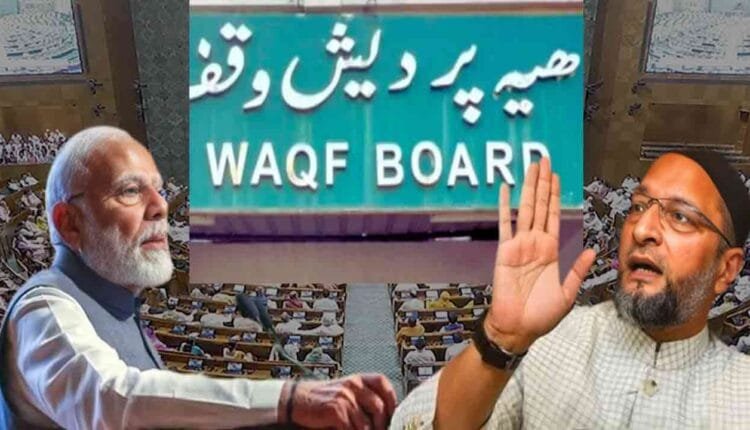
The Waqf (Amendment) Bill was introduced in the Lok Sabha on August 8, 2024, with the Union government calling it a “historic day” for reforms in Waqf administration. The bill seeks to bring significant changes to the Waqf Act of 1995, including the inclusion of non-Muslim members in Waqf boards and the verification of properties before declaring them as Waqf assets. While the government insists that the bill will ensure better transparency and governance, opposition parties have strongly criticized it, calling it unconstitutional and an attack on minority rights.
Minority Affairs Minister Kiren Rijiju defended the bill, stating that it does not infringe upon any religious freedoms. He argued that the amendments aim to provide rights to those who have been historically excluded rather than taking away rights from any community. Rijiju also accused the opposition of misleading the public and creating unnecessary fear about the bill’s provisions. The ruling party maintains that these reforms are necessary for better management and administration of Waqf properties.
However, the bill has faced severe criticism from opposition leaders across party lines. Congress MP K.C. Venugopal called it a “fundamental attack on the Constitution,” arguing that it violates religious autonomy. AIMIM chief Asaduddin Owaisi raised concerns that the bill contradicts Articles 14, 15, and 25 of the Constitution, labeling it as discriminatory and arbitrary. He accused the government of being antagonistic towards Muslims and attempting to control Waqf institutions. Samajwadi Party chief Akhilesh Yadav also opposed the inclusion of non-Muslims in Waqf boards, questioning the logic behind appointing outsiders to religious institutions. Similarly, DMK MP Kanimozhi Karunanidhi described the bill as unconstitutional, arguing that it directly violates Article 30, which guarantees minorities the right to manage their religious institutions.
One of the most contentious aspects of the bill is the inclusion of non-Muslim members in Waqf boards. Critics argue that this move undermines the autonomy of Muslim religious institutions and could set a dangerous precedent for government interference in religious matters. Another major provision of the bill is the requirement that Waqf properties be verified by government authorities before being officially recognized. While the government claims this is necessary to prevent illegal encroachments, opposition leaders argue that it could lead to unnecessary bureaucratic control and potential misuse. The bill also proposes separate boards for different sects, such as the Boharas and Aghakhanis, which some believe could lead to further divisions within the community.
Following heated debates in Parliament, the bill has been referred to a Joint Parliamentary Committee (JPC) for further examination. However, opposition members within the JPC have alleged procedural violations and claimed that their efforts to ensure constitutional protections for minorities were ignored. They accused the committee’s chairperson of acting under government pressure and have even threatened to take the matter to the Supreme Court if the bill is passed.
As discussions continue, the Waqf Amendment Bill remains a highly contentious issue, highlighting deeper debates about religious freedom, minority rights, and the government’s role in managing religious affairs in India. With both sides standing firm on their positions, the fate of the bill is set to be a major point of political and legal debate in the coming weeks.



